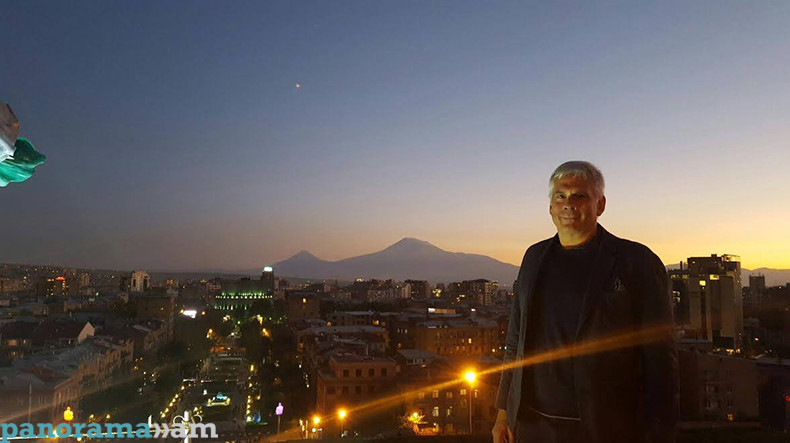
Italian professor: Poor food safety management leads to serious social and economic consequences
“Poor food safety management leads to serious social and economic consequences and problems,” Tuscia University (Italy) professor Nicolo Merendino reminds witnessing the current issues in food safety management in Armenia.
The Italian professor explains that poor nutrition leads to decline in the ability to work and development of various diseases. On one hand, diseases require financial resources. On the other hand, if a person doesn’t work it leads to social and economic losses in the country.
“Unfortunately, most of the time, food safety is presented out of context, only as the right of public health or the consumer. The sector is neglected, which leads to many problems, including social and economic,” the Italian scientist told Panorama.am.
The professor and the head of risk assessment of food chains at the Center for Ecological Noosphere Studies of the Armenian National Academy of Sceinces, Davit Pipoyan have been conducting research in Syunik and Akhtala (Armenia). They have made assessments regarding the health risks of the consumption of food grown in these regions.
Scientists have found out the amount of heavy metals in soil, in vegetables and fruits, as well as the possible health effects on humans when using them. 15 fruits and vegetables, tomatoes, peppers, eggplant, beans, etc have been studied. Large amounts of copper, molybdenum, chromium were in them.
“If taken in large quantities, even the elements necessary for metabolism may present serious problems from the point of view of public health. Extremely high quantities of heavy metals have been found in some foods during the study,” the Italian professor said.
It turned out that two different vegetables cultivated in the same polluted area contain different amounts of heavy metals. The impact of these foods on the human health more or less depends on the amount of consumption. For example, basil and dill absorb more heavy metals, but people consume larger quantities of beans and potatoes.
“We have assessed the risk not only of the metals in general, but also of separate elements. The risks to health vary in degree; one might cause tumour, the other may be neurotoxic,” David Pipoyan explains.
During the research, scientists saw people grow fruits near tailings then sell them in the market.
“It is very important to note that they make canned food from those [vegetables],” he further explains.
The Italian professor reminds that as research scientists, they have identified issues and published in international scientific journals. However, they don’t have the authority to solve problems. They need to cooperate with government agencies.
When asked whether they would allow selling vegetables grown near tailings in Italy, Nicolo Merendino said that the issue is fully regulated by legislation in Italy. “Moreover, there are two laws on the same issue, environmental protection and food safety. State control is strict in both areas. Food security issues are regulated not only by administrative but also criminal responsibility in Italy.”
The professor noted that the mining industry levels drop in Italy. “For production of such levels, high fees are required, which is not favourable for Italy. There are countries that can damage the environment and exploit people, I’m sorry for using the word. We also prefer to buy products from countries that offer low-costs as a result of exploitation.”
It should be noted that the Center for Ecological Noosphere Studies deepens international cooperation in the field of food safety. The chair of the NAS Centers of International Educational and Ecological Noosphere Studies has been included in the European Erasmus + project as a beneficiary. Within the framework of the project, Professor Nicolo Merendino has visited the center for lectures on food oxidative stress and antioxidants.
The center started cooperating with Italy in the field of food safety in 2011. This time Professor Niccolo Merendino addresses a very important issue, as the studies have shown there is a potential danger in Armenia connected with oxidative stress caused by metals.
Newsfeed
Videos






























